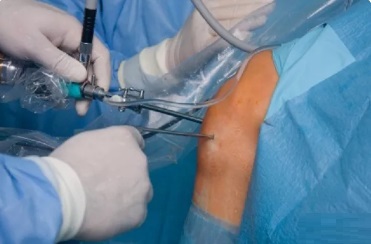
ORTHOPEDICS/LEG, FOOT & ANKLE/THERAPY & SURGERY Ankle fusion is a surgical technique performed for severe ankle arthritis therapy. When ankle pain arises due to an arthritis, and when the non-surgical therapies fail to provide appropriate healing, a surgery may be considered. There are two alternatives for patients who endure serious arthritis: (1) Ankle switching surgery and (2) Ankle fusion surgery. About Ankle Fusion surgery Compared to ankle switching surgery, an ankle fusion surgery is frequently preferred in patients that are more active. Patients who undergo an ankle fusion surgery will have a perpetually stiff joint, and may be unable to…









